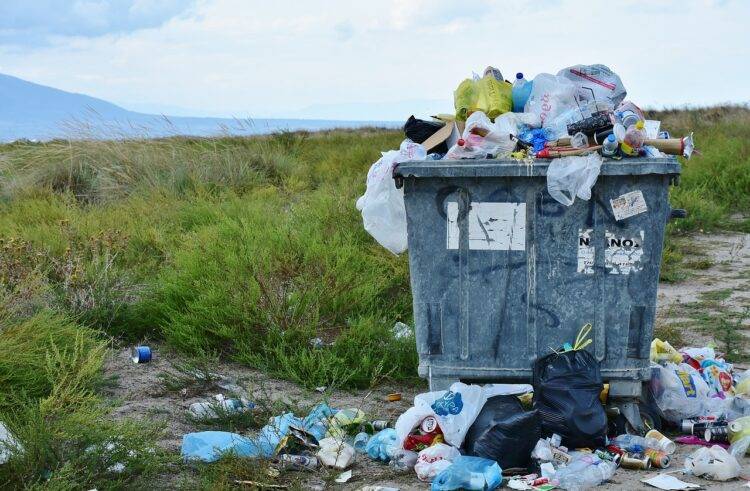Poland is set to introduce a nationwide deposit scheme in an effort to reduce environmental pollution and promote a circular economy. The government has just agreed to this system, which will apply to aluminum cans, reusable glass bottles, and single-use plastic bottles. The move is in line with the European Union’s directive on reducing the environmental impact of certain plastic products, putting Poland on the path towards adopting the minimal legal requirements that shift the responsibility for packaging waste to the producer.
The deposit system in Poland will cover single-use plastic bottles up to 3 liters, reusable glass bottles up to 1.5 liters, and aluminum cans with a volume up to 1 liter. The system aims to increase the level of selective collection, thereby boosting the recycling of packaging waste and reducing environmental pollution. It is expected to have several positive effects on the environment, including higher recycling rates, cleaner public spaces, and protection of ecosystems.
The proposed deposit is set at 50 groszy (0.5PLN), which is an equivalent of about $0.15, but this can still change before the system is fully in force due to the rising prices cause by the world-wide inflation crisis.
The deposit system will be created by the producers themselves, as the proposed regulation leaves a lot of freedom to businesses in this regard. The exact amount for the deposit will be determined by the entrepreneurs involved in the scheme. The implementation of the deposit system is expected to begin from 2023, with a transition period for businesses lasting at least two years. It will come into force in 2025.
Participation and Obligations
While the deposit system will be optional for small shops with an area of up to 200 square meters, larger stores stocking products sold in bottles or cans will be required by law to implement the system. Producers and retailers who do not join the scheme will be obliged to pay a product fee. Those selling beverages will be represented by one operator, who will submit an annual report to the climate minister.
Smaller businesses will only be required to collect the deposit; whether they choose to accept returns and issue refunds is up to them. Big stores with an area of more than 200 square meters will be required to accept customer-returned packaging.
Benefits of the Deposit System
Encouraging Selective Collection and Recycling
By introducing a financial incentive in the form of a deposit, the system encourages individuals to take an active role in waste management. This approach promotes a circular economy by incentivizing the return and reuse of packaging materials, leading to higher recycling rates and reduced litter caused by packaging waste.
Enhancing Cleanliness and Protecting Ecosystems
The deposit system will help enhance the cleanliness of public spaces by reducing litter caused by discarded bottles and cans. This, in turn, will protect ecosystems, particularly water bodies and wildlife habitats, from the harmful effects of packaging waste pollution.
Aligning with EU Directives
The implementation of the deposit system in Poland is in line with the EU’s directive on single-use plastics, which requires member states to collect and reuse 90% of such packaging by 2030. By adopting the deposit system, Poland is taking a step towards fulfilling its obligations under the directive and contributing to the overall goal of reducing the environmental impact of plastic products.
Challenges and Considerations
Balancing Business Freedom and Environmental Responsibility
While the deposit system provides businesses with the freedom to determine the deposit amount and the method of collecting packaging waste, it also places the responsibility for ensuring the proper functioning of the system on the producers. This balance between business freedom and environmental responsibility is crucial for the successful implementation of the deposit system and the achievement of its intended goals.
Addressing Popular Waste Items
The deposit system is expected to help reduce environmental pollution from discarded small vodka bottles, which are popular in Poland. However, it is essential to consider other popular waste items, such as plastic bags, and develop comprehensive strategies to address the environmental impact of these products as well.
Coordinating with Existing Regulations
The proposed deposit system legislation must align with existing regulations in Poland and those adopted by the EU Parliament. This coordination is necessary to ensure that the deposit system complements, rather than conflicts with, existing waste management policies and practices.
The introduction of the deposit system in Poland is a significant step towards reducing packaging waste and promoting a circular economy. By incentivizing the return and reuse of packaging materials, the system encourages individuals to participate in waste management and fosters a culture of recycling and environmental responsibility. As the deposit system is implemented and refined, it will contribute to cleaner public spaces, protected ecosystems, and a more sustainable future for Poland and the European Union as a whole.
- More News from Poland on our Homepage.
- Sign up to our Newsletter to receive a weekly recap and stay informed about current events in Poland
- Don’t forget to follow us on Facebook.


















